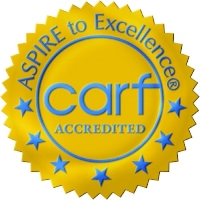The DBT team at FFCP receives ongoing consultation from E. Paul Holmes, Psy.D, who is a senior lecturer at the University of Chicago, managing partner at the Emotion Management Program in Chicago, Illinois, and has nearly three decades of experience in the contextual-behavior sciences. Dr. Holmes received extensive training by the Linehan training group as a member of the original in-state training team for the state of Illinois. He also received specialized instruction from the Linehan group, to train others in DBT. Dr. Holmes developed a form of DBT, Contextually-focused DBT (C-DBT), which integrates the psychological flexibility model from Acceptance and Commitment Therapy (ACT) into the structure of DBT.
In other words, DBT provides the structure, and ACT informs the way in which targets are addressed. Dr. Holmes plans to publish the first C-DBT manual in 2021.
Both ACT and DBT are rooted in Eastern traditions, and emphasize mindfulness and acceptance strategies. Many of us feel frustrated and defeated by efforts to change or control aspects of our experience that are simply out of our control (our thoughts/emotions, the past/future, other people’s behavior, and the world around us). This is where acceptance comes in. We believe acceptance is a prerequisite for change. It begins to decrease some of the psychological suffering that often results from a disconnect between where we are at now, and where we want to be. A stance of acceptance frees up some of our mental space and energy, creating room for discussion and problem-solving.
In a collaborative and experiential process, our therapists guide our clients in the process of identifying values and purpose, and then determining and committing to concrete action that moves us towards, rather than away from those ends.


